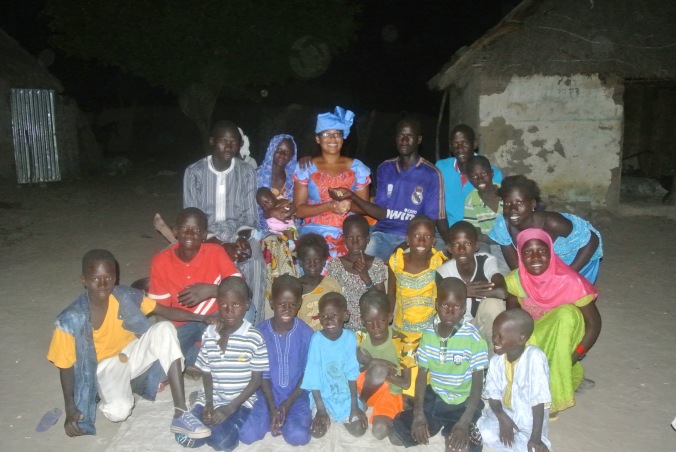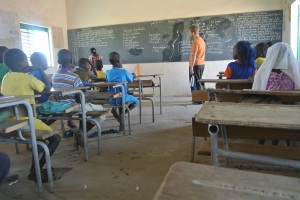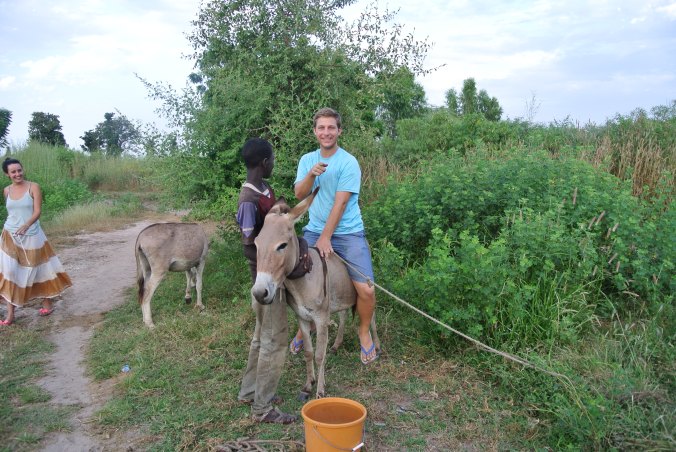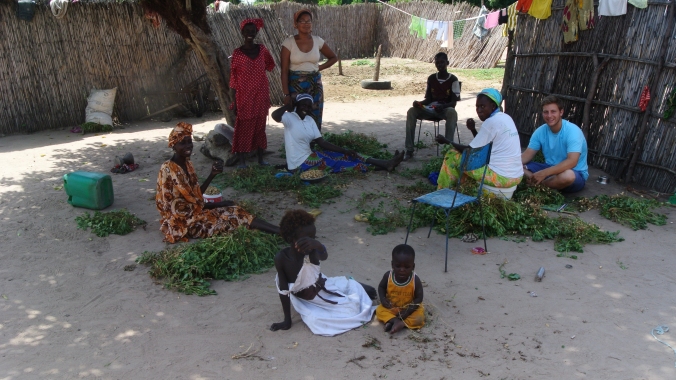Last week was an unforgettable experience. During a visit to a rural community I was able to integrate into life quickly and participate in a multitude of activities. From Senegalese wrestling, to harvesting peanuts, to riding horses and donkeys, to searching water from a well and carrying a bucket on my head, to teaching an elementary school class in French – my rural visit was enriching. It was remarkable to see the work ethic of these incredible men and women. They are focused on the essentials of life and it was a breath of fresh air to reconnect with nature and traditional ways of living. Here is my week in a nutshell:
I got up at seven o’clock to take a taxi, a bush taxi, a bus and finally a horse cart before arriving in the village of Keur Wack Dia, 25 km to the southwest of Kaolack in central Senegal. The village is located in the heart of the bush. There are no more than three hundred people, and the village is divided into two with one half of the people who speak Wolof and the other half speaking Serer. I was accompanied by another student named Georgia and a member of the Peace Corps named Katerina. As soon as we arrived at the site, Katerina introduced us to the village chief. Georgia and I gave him two bag fulls of bananas and I found out that I would be sleeping with him in his hut. Then we met the whole village, they all came to welcome “the Toubabs.” Of course, I immediately forgot every single word of Wolof I thought I had learned in class. The language barrier was my biggest problem all week. Fortunately, the villagers were very forgiving. For dinner, they prepared couscous. As a man, I ate first with the other men, and after we finished it was time for women to eat. I noticed throughout the week how gender roles were well defined in village life. To end the evening each night, we sat on mats and lay under the stars. I think it was one of the activities I enjoyed the most- laying under the stars in rural Africa and talking about life in an African tribal language.
The rest of the week flew by and I realized that the most important thing I had to do was to participate actively. The day began at about 5:45 am with the call to prayer. After the prayer, the whole village was awake and already in the process of working. Women have made several trips to the well and the men went out to start harvesting peanuts. It is essential to start early because the heat is unbearable in the early afternoon. Villagers work all day and rarely take breaks and they go from one task to another. An amazing thing is that I’ve never heard any complaints (although I actually understand limited Wolof, I didn’t see any facial expressions that showed signs of negativity).

My Village Family!
My career and academic goals have been changed since being here. I was not sure if graduate school is for me, but I am coming to realize that I should take advantages of the opportunities I have in the United States to gain a good education to be better prepared to help others. I also decided that the Peace Corps is not for me. It had always been a viable option at the back of my head, but spending one week in their shoes allowed me to have an even deeper respect for their service and realize that I wouldn’t enjoy their lifestyle.

The kids are so eager to learn, and it was fun being a last minute substitute.
At the end of the week, I easily came to love the people of the village and they were able to love me. The leader asked me if I wanted to stay and be the next volunteer Peace Corps, but I had to refuse the offer. It is amazing how one week can really change my perspective on life and allow foreigners who do not share the same culture, the same race, or the same language to create strong relationships that will leave lasting memories.






